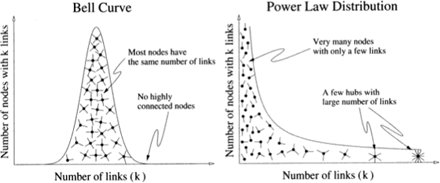With all the focus on Engagement in the Marketing Community (I’ve had 3 interview requests this week!), one has to wonder why Marketing Productivity concepts like LifeTime Value tend to be last on the list of concerns. All the focus seems to be on Engagement as a short term idea, as opposed to over a longer run. Why? Isn’t a customer who sticks with you over time a truly Engaged customer?
A lot of times people blame the “complexity” of database marketing concepts on their lack of adoption. This may be true at some level, but I think plenty of people understand the basics of these ideas. I think some companies simply lack the incentive (for now) to implement marketing programs with a longer-term view, and there are some fundamental reasons why:
Business Culture
In large companies, where the rewards for performance are all tied to short-term goals – your sales today, beating the quarterly estimates, etc. – then why should anybody care about Productivity over the longer term? This is the periodic versus customer accounting problem I detailed back in 2001. There is no incentive to act with longer term customer profitability goals in mind in most companies, save those who were “born” with this culture. If you think about it, this is one reason the smart money is chasing retail buyouts right now. Many companies are undervalued based on these old “sales now” rules, and without the pressure of the public markets, they can focus on profitability, including long-term customer metrics.
Nobody in Charge
In large organizations, the rapid turnover in the CMO position (average 23 months tenure?) clearly speaks to why folks at the top of the Marketing Chain are not particularly interested in the longer-term consequences of their marketing actions. But what’s the cause of this effect? Is CMO tenure so short because they’re not interested in long-term results, or is it just job churn? The results of the CMO Council survey seem to confirm the former, while placing some blame on hiring practices at the C-Level. In other words, the CEO wants a CMO with a long-term view that can back it up with numbers – but can’t find one. Too many RockStars, apparently.
Below the CMO, how many companies have a person in charge of Customer Productivity or Retention? If nobody is in charge of it as a full-time responsibility, then certainly it is not in anybody’s best interest to chase the goal. A Customer Experience Officer is not what I’m talking about here; being “Nice to Customers” doesn’t always pay out. You need a full-time person in charge of any analytically-oriented area (including web analytics) to reap optimal benefits.
Not Desperate Yet
True for both small and large companies. The fellow quoted in the first link above simply is not feeling the pain yet. The longer you have been around, the more meaningful the pain becomes. Symptoms: year over year sales go flat and then trend down, even though ad spend is increasing. The company has hit the wall.
Some of the oldest web companies are starting to feel this now. You can hide it for a while with acquisitions or going international. But at some point, somebody asks, “How many best customers do we have now?” And the answer is something like “20% fewer than we used to have”. Then people go nuts trying to “fix” a problem by looking at what they did last month or last quarter, when what matters is what they were doing last year or the year before.
If you have spent the last year or 2 generating customers with low Future Value, you’re stuck. As Future Value becomes Current Value, there is hell to pay, because you just can’t change it in the Present, no matter what you do. The only alternative you have is to start creating higher value customers now, so that sometime in the Future, growth will return.
Now, you can argue this slowdown effect is simply the natural cycle of a business. And it is. But I ask you, if you can slow the cycle or even minimize it, why wouldn’t you? I suppose it’s much easier to blame the “competition” or the “economy” or whatever your favorite excuse is for a sales slowdown other than your own execution.
Interesting Fact: The demand for Customer Engagement / Productivity / Retention / Loyalty programs and services is counter-cyclical; demand always falls off when the economy is good and when the economy slumps, all of a sudden “everybody” wants a customer retention program of some kind. This behavior is of course suboptimal, since the time to implement such a program is during the “good times” so you are prepared for the “not so good”.
Thoughts? Does your company care about customer value? Or do they just measure performance against “sales”?
If you’re not doing any serious Customer Analysis, is it because you have a challenge with getting the data / analysis? Or is it a lack of interest / sponsorship / resources that is holding you back?
